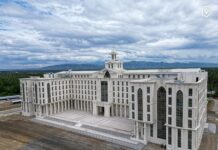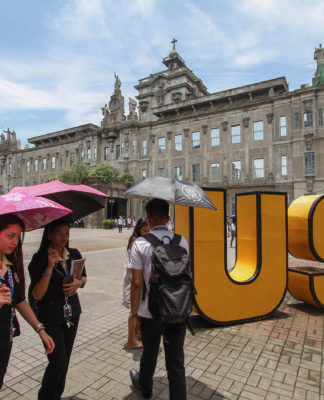 Hearing the word “Church” for some people is like setting fire to their bottoms that they could not help but react in a violent way. It was as if the Church had hurt them deeply, had killed their pets, and had torn their souls apart.
Hearing the word “Church” for some people is like setting fire to their bottoms that they could not help but react in a violent way. It was as if the Church had hurt them deeply, had killed their pets, and had torn their souls apart.
At some point, the Church did something wrong. But all this is in the past. The scandal recently wracking the church—clergy abuse—has wounded the institution deeply. But the Church has started to deal with it firmly. The statistics would also tend to show that the Church, along with other sects and religions, may have its own share of clerical miscreants, and this is an exception.
But unique among the major religions, the Catholic Church has been mercilessly pilloried. Media and attack groups have always harped at the Church’s alleged wrongdoings in the past and lambasted the Church’s position on contraception, sex education and Aids. Whenever these issues are discussed, the Church is almost always demonized and the negative aspects of its history are highlighted.
What is glossed over or completely ignored is that the Church has done much for human civilization—that it has built the great gothic cathedrals, sponsored the rise of universities, pioneered the hospital system, and generally gave birth to social welfare, philanthropy and charity system.
The distrust of the Church seemed to be eternally marked in many youths. The problem is that these youths do not even know the history of the Church. Most likely, they do not go to Mass or have not talked personally to a priest. Their distrust has a different root, that is, their belief that the Church is a Jurassic institution that has no relevance today.
Many people support the Reproductive Health (RH) bill simply because the Church is against it and they are against the Church. As they say, “the enemy of my enemy is my friend.” They are blinded to the Church’s warning that contraceptives can harm women, that everyone’s tax will be used for another’s sex life and probably for corruption, and that the RH bill is the product of lobbying by other countries and influential groups that have a eugenic mindset and could be another form of imperialism.
Some evidence that these people do not just oppose the teachings of the Church, but the Church itself, is the way they stereotype the priesthood as “Padre Damaso,” “hypocrites,” and “Jurassic.” Many pro-RH people are simply anti-Church, who accuse the anti-RH as closed minded and “mga tuta ng Simbahan.” Little did they realize that being against the belief of an institution simply because it is an institution that they dislike is the best sign of closed-mindedness and hypocrisy.
In addition, they ignore the fact that Catholic laymen and professionals, not alone the bishops or the hierarchy, are opposed to the RH bill. Moreover, they ignore that other groups and individuals, not necessarily the Church or belonging to it, are against the RH bill.
This is not to say that atheists, so-called “free thinkers,” agnostics, and even pro-RH people who call themselves Catholics, believe the teachings of the Church. What is needed is for them not to close their minds to what the Church says simply because it is the stand of the Pope, the bishops, and the priests. What is needed is for them not to put down an institution just because of their fuzzy knowledge of history.
In any case, it is perfectly sound for one to listen to an institution that has been there for centuries. Detractors and vicious attackers of the Church should brush up on their history and give the Church the benefit of the doubt. Its record speaks for itself: the Church, warts and all, has done much to benefit humanity.
The pro-RH Catholics should know this, especially since some of them teach in Catholic institutions. They should have the courage of their intellectual conviction—and their faculty membership. As what the popular editorial of the Varsitarian stated, “It takes guts to be a Catholic nowadays.”

















Your defense of the Church is indeed admirable. I agree with your points on the Catholic Church’s immense civilizing contributions to humankind. There is perhaps nothing in history that can match its impact on all of us, for better or for worse.
But the Church’s positive contributions to society do not give it the license to impose its will on everybody else. Neither do Catholic adherents like yourself who feel compelled to impose your religious beliefs to those who don’t necessarily share it.
I don’t have a problem with a Catholic institution like UST advancing Catholic teachings. I don’t have a problem with individual Catholics living their lives according to their faith. Even if that involves exploding the population, or unnecessarily spreading preventable diseases, or further straining the already limited resources for social services. If the infallible teachings of the Holy Mother the Church say so, then so be it.
I have a problem with those who have shown little respect for everybody else’s freedoms just because they are not shared by the superior and always infallible Catholic doctrine. I have a problem when they want to impose those beliefs on society by making them part of social policy through legislation. Despite overwhelming opposition. Despite overwhelming scientific data. Despite common sense.
Carlo Cadiz, MD
Associate Editor, the Varsitarian 1993